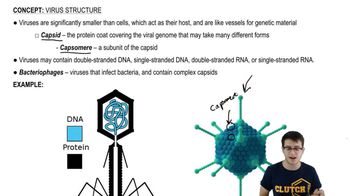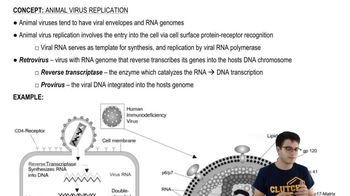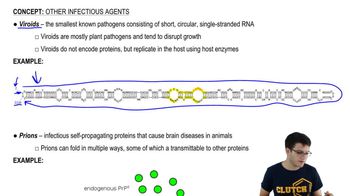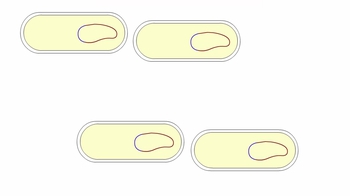17. Viruses
Viruses
Problem 13a
Textbook Question
Textbook QuestionThe mosquito-borne Zika virus (ZIKV) is one of the most feared viruses for pregnant women. Recent statistics justify this fear: Infants born to mothers infected with ZIKV during pregnancy face a risk of up to 42 percent of developing birth defects, including microcephaly (an abnormally small head and decreased brain volume). What do we know about how ZIKV causes damage to the developing brain? Several lines of evidence suggest that after ZIKV is transmitted to a pregnant woman via the bite of an infected mosquito, the virus then directly infects cells of the placenta, gaining access to the fetal brain. Following attachment, the virion would most likely enter the placental cell by: a. insertion via the mosquito's mouthparts b. endocytosis c. degrading the cell wall with lysozyme d. injection through a hollow, needle-like protein structure
 Verified Solution
Verified SolutionThis video solution was recommended by our tutors as helpful for the problem above
Video duration:
1mPlay a video:
272
views
Was this helpful?
Related Videos
Related Practice
Showing 1 of 95 videos






























































![Plaque Assay: Assay for estimating viral titre or viral concentration [plaque forming units / mL]](https://img.youtube.com/vi/zFqyaoLQbxQ/mqdefault.jpg)
































